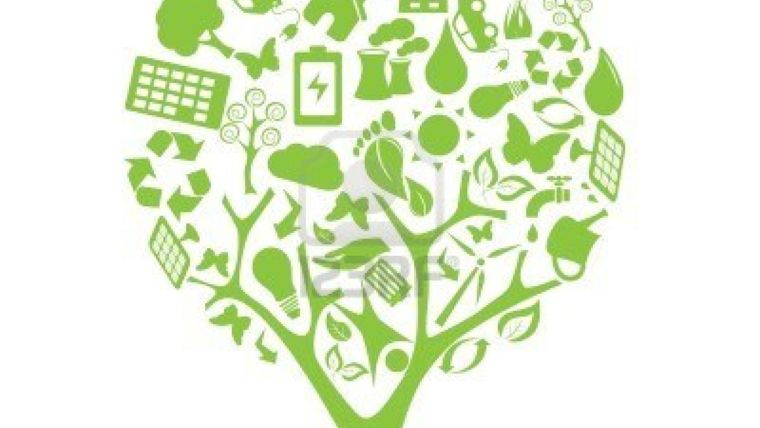There are untold numbers of articles reiterating the fact that regardless of what the Trump Administration does about reducing the current CAFE (Corporate Average Fuel Economy) standards it would be insane for the auto manufacturers NOT to continue pushing forward on maximum fuel economy for their ICE’s (Internal Combustion Engines) and rollout of electric vehicles. The article below is one of the many that quotes auto executives delineating this.
Here’s my view of why I don’t think that even if the rollbacks are issued that they will any impact on the frantic march forward to the objective of electrifying our entire automotive sector of the economy.
1. New regulations will be challenged in court which will take years to resolve. In the meantime the current standards will stay in place (most likely) and the auto industry will continue to develop and install the technology to meet these standards which, by the way, they are consistently bettering. Furthermore, by the time the lawsuits are resolved we could very well have a different Administration that is supportive of accelerating higher fuel economy and transition to an EV future and our vehicles will already be meeting the current standards with much better efficiency.
2. The chances are pretty high that sooner or later there will be much higher standards put into place and the manufacturers will have to meet these so they can’t afford NOT to doing their utmost to develop the required technology. If some don’t and others do it would put those that don’t at an extreme disadvantage in the marketplace if they could even survive.
3. Considering that the manufacturers have to plan at least 3 years in advance for production it is hard to imagine that they would assume that whatever happens in 2018 will be relevant in 2021 and beyond and stop innovating and planning for a zero carbon future. First it is design and engineering, then sourcing the products from the suppliers after which comes the prototypes and testing before instituting mass production. They simply cannot afford to fall behind.
4. All major auto manufacturers produce vehicles worldwide and the rest of the world is not putting the brakes (pun intended) on r and d and implementation. They are pushing ahead with vigor because most every other industrialized country is requiring reduced emissions (including China). Thus, these same manufacturers have to develop and install the technology in order to be competitive worldwide. And why wouldn’t they bring that same technology to the US?
So, nope. We are not going backwards. Don’t get me wrong. We’ve got a big fight on our hands. And fight vigorously we will do. But don’t despair. We will win this one. Not simply because we want to save the planet but because of worldwide regulations and competition.
New CAFE Targets Won’t Slow Pace on Engine R and D
Automotive News
DETROIT – The Trump administration may be intent on lowering U.S. fuel economy standards for 2022-2025 model year vehicles, but automakers said here last week that it won’t slow the pace of their research and development to make internal combustion engines more efficient.
Powertrain executives from General Motors, Ford Motor Co., Honda Motor Co. and Fiat Chrysler told an audience at SAE International WCX World Congress Experience here last week that they will continue investing in improved fuel efficiency of their internal combustion engines, even as they develop electrified powertrains.
“At Ford, we have set clear objectives and we are not going to change our plan,” said Dave Filipe, Ford’s vice president of powertrain engineering. “We want to be technology leaders.”
GM echoed the statement.
“We’re certainly not breathing easier,” said Dan Nicholson, General Motors’ vice president for global propulsion systems. “We’re on a march to zero emissions, and it is a marathon, not a sprint. We are working on a lot of short- and midterm actions. What’s important to us through this process is that we end up with one national standard.”
Tomonori Niizato, senior chief engineer with Honda R and D Co., said that a change in U.S. targets was not Honda’s only r and d consideration.
“Our plan is based on global requirements,” Niizato said. “Even if greenhouse gas limits become easier, we won’t change the preparation of technology or our deployment plan.”
In the waning days of the Obama administration, the EPA finalized the 2022-2025 corporate average fuel economy standards calling for a projected 51.4 mpg by 2025, C02 emissions levels of 173 grams per mile, and hefty fines for violators. The move came months before the deadline, prompting automakers to complain that the EPA did not properly evaluate all the data regarding costs and consumer acceptance of new technologies.
This month, the Trump administration started the process to relax the 2022-2025 rules, angering California officials whose emission standards are aligned with those of the EPA, as well as numerous environmental groups.
But while panelists said their companies are committed to lowering C02 emissions and boosting fuel economy, they also said they would welcome additional credits that were not considered when the original regulations were drafted in 2012.
Nicholson said car sharing and self-driving cars should qualify for emissions credits. “A shared autonomous vehicle that drives 24 hours a day and displaces a lot of vehicles should certainly count for more than a single-use passenger car,” Nicholson said.
“I think it is a positive that customer behavior and economic realities of the time are getting consideration now,” said Jeff Lux, who manages engineering for Fiat Chrysler’s transmissions and drivelines. The price of fuel is lower, and consumers have turned away from cars, favoring less-efficient pickups and SUVs.
“We’re all still going to work on the technology,” Felipe said. “The good news, I think, it just puts less pressure on us to force-feed the customer the technology. We’ll have the portfolio.
The customer, he said, “will be able to establish the demand, instead of the OEMs forcing them to take something they don’t like. That’s maybe the little bit of freedom we will enjoy.”



